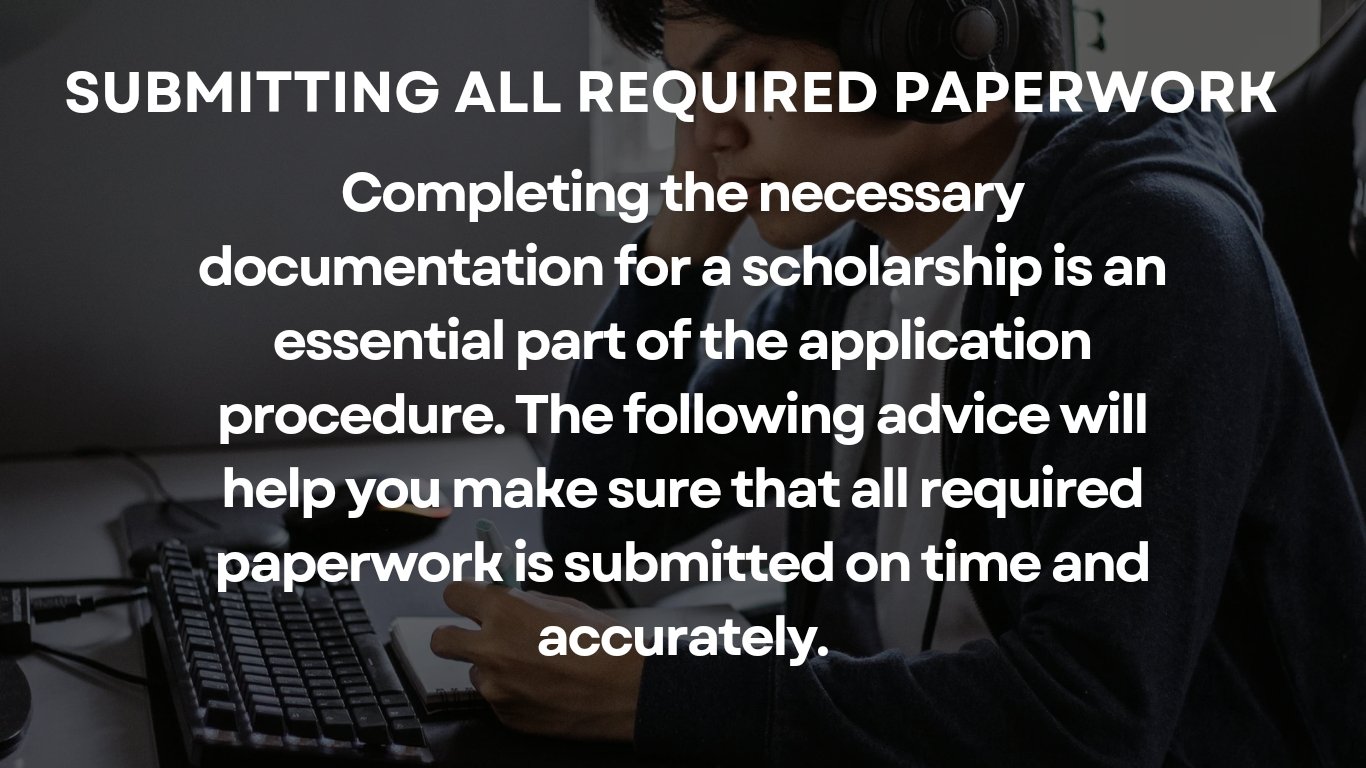International Students Scholarship:
International Students Scholarships are frequently available to international students to help pay for their study abroad programs. Universities, governmental bodies, businesses, and charities frequently provide scholarships. The following advice can help you locate scholarships for international students:

SCHOLARSHIP FOR UNIVERSITIES
International students can apply for scholarships offered by numerous colleges worldwide. These scholarships could be awarded based on leadership, academic achievement, or other factors. Look for the scholarship programs offered by the universities you are interested in by visiting their official websites.
Governmental Awards:
International students can apply for scholarships from certain governments as part of their foreign aid or cultural exchange initiatives.
The government of your own country can provide you with information about scholarships that are available.
Private Establishments and Funds:
International students can apply for scholarships from a number of private foundations and organizations.
Seek out foreign student scholarships provided by institutions associated with your area of study or passions.
Databases for Online Scholarships:
Examine internet resources for scholarships that are intended for students studying abroad. Good places to start are websites such as International Scholarships, Chevening Scholarships, and Scholarship.com.
Scholarships by Country:
A number of nations provide particular scholarship programs to students from particular areas or nations.
Look into scholarship options specific to the nation in which you intend to pursue your studies.
Professional Associations:
Find out if your subject of study has any professional associations. They might provide information about other options or give scholarships.
Consulates and Embassies:
Get in touch with the consulate or embassy of the nation where you intend to study. They might be able to provide information about overseas students’ access to scholarships.
Charitable Institutions:
Investigate nonprofits that concentrate on teaching and studying abroad. These groups might be able to provide financial support.
Offices of Financial Aid:
Speak with the financial assistance departments of the colleges you are considering applying to. They can offer details on financial assistance programs and scholarships that are offered.
Internet forums and platforms:
Engage in virtual discussion boards and groups whereby international students exchange knowledge and firsthand accounts. You might discover insightful information and scholarship opportunities.
Make sure you thoroughly read the eligibility conditions and application requirements before applying for scholarships. As an international student, you can increase your chances of getting financial support for your studies by paying attention to deadlines and submitting all required paperwork. https://www.wur.nl/en/education-programmes/master/practical-information-masters/scholarships-for-international-masters-students.htm
ELIGIBILITIES CONDITIONS

International Students Scholarship- Depending on the scholarship source and the particular program, eligibility requirements for scholarships for international students can differ significantly. Nonetheless, the following typical standards are frequently taken into account:
Academic Merit:
Academic achievement is a major factor in the awarding of many scholarships. Applicants might have to show excellence in their academic achievements or meet a minimum GPA criterion.
Study Subject
Certain scholarships are restricted to particular subject areas or academic specialties. Verify that the field you have chosen meets the requirements for the scholarship.
Country of Origin:
Students from particular nations or areas may only be eligible for a portion of the scholarships available. Verify if there are any restrictions based on nationality.
Language Proficiency:
If the courses are provided in a language other than your native tongue, proficiency in the language of instruction may be required. Standardized language assessments such as the TOEFL and IELTS are frequently used to illustrate this.
Need for Money: A few scholarships are given out in response to financial necessity. It may be necessary for applicants to furnish details regarding the financial status of their family.
Extracurricular activities and leadership:
Scholarship applications may take into account an applicant’s leadership experience, volunteer work, or extracurricular engagement. It may help to emphasize these experiences in your application.
Experience at Work:
Applicants for some scholarships would need to have relevant job experience in their field of study.
Study or Project Concept:
Applicants may be required to submit a research proposal detailing their study, its significance, and their expected contributions in order to be considered for research-based scholarships.
Maximum Age:
Certain scholarships could have an age limit. Verify whether the scholarship you are looking for has an age restriction before applying.
Essays for applications or interviews:
It could be necessary for applicants to submit essays or go through interviews in order to show their drive, objectives, and eligibility for the award.
Test Results:
The requirements for standardized test results, such as GRE, GMAT, SAT, or others, may vary depending on the scholarship and the country of study.
Insurance and Health:
Certain scholarships could need a medical exam or documentation of health insurance.
Note: Before applying, it is imperative that you thoroughly review the eligibility conditions provided by each scholarship source to make sure you meet all of the requirements. Please get in touch with the scholarship provider if you need further information or if you have any questions.
APPLICATION REQUIREMENTS

International Students Scholarship- Depending on the scholarship program and the institution or organization administering it, there can be significant differences in the precise application requirements for scholarships for overseas students.
Nonetheless, the following is a broad summary of typical application requirements that you can run into:
Application Document: Fill out the formal application that the scholarship giver has sent you. Make sure you thoroughly and precisely complete each section.
Synopsis: Send in your academic records or transcripts from your prior schools. If the supporting documentation is not in the language of instruction, some scholarships could need certified translations.
Recommendation letters: Provide recommendation letters from academics, professionals, or instructors who can vouch for your character, abilities, or academic accomplishments.
Curriculum Vitae (CV) or resume: Create a CV or resume that shows your training, professional background, volunteer work, research endeavors, extracurricular involvement, and any other noteworthy accomplishments.
Essay or Personal Statement: Write a personal essay or statement outlining your educational and professional objectives, why you should be awarded the scholarship, and how it will fit into your long-term plans.
Results of the Language Proficiency Test:
Add results from standardized language proficiency exams like the TOEFL or IELTS, if appropriate.
Scores on Standardized Tests: According to the conditions of the scholarship, provide results from pertinent standardized tests such as the SAT, GMAT, GRE, or others.
Research Idea: Provide a thorough research proposal explaining your project, its importance, and your expected contributions if the scholarship is research-focused.
Accounting Records: In the event that the scholarship is need-based, you could be required to submit proof of your family’s financial status.
Portfolio (for specific fields):
Provide a portfolio of your work if you’re applying for a scholarship in the creative industries, such as the arts or design.
A copy of the passport: A copy of your passport or other official identity should be included.
Evidence of Health Insurance: Proof of health insurance coverage might be necessary for some scholarships.
Conversation: As part of the selection process, be ready for an interview that may take place in person, over the phone, or via video conference.
Proof of University Acceptance: Certify that you have been accepted into the school where you intend to continue your education.
Note:
Always carefully read the scholarship’s application requirements.
DEADLINE

The dates for applying for scholarships might differ greatly, so it’s important to know when each scholarship is due.
The following are some general pointers on deadlines:
Visit the official websites: Go to the official websites of the universities providing the scholarships or the scholarship programs. There will be the most recent and accurate information available.
Commence Early: Start looking for scholarships and submitting your application as early as possible. Applications for some scholarships open months in advance of the deadline.
Take Note of Multiple Deadlines: Keep track of the deadlines for each scholarship you are applying to if you are applying to several. To keep organized, make a spreadsheet or calendar.
Top Priority Deadlines: Applying by these dates may improve your chances of being accepted for the award or getting a larger sum of money for certain scholarships, which have priority deadlines.
Send in Early: Do not delay to submit your application until the final minute. It’s possible for there to be unforeseen delays or technical problems, so allow adequate time to deal with any potential problems.
Think about time zones: Make careful to adjust the scholarship deadline to your local time zone and submit your application in accordance with it if it is stated in a different one.
Moment of the Day: Certain deadlines for certain scholarships could include a specific time of day. Please ensure that your application is submitted by the deadline.
Components of the application: Take note of the due dates for each application component, such as test score submissions or recommendation letters. Make sure that every component is turned in on time.
Official Days Off: Any official holidays or breaks should be noted as they may affect how your application is processed. Make appropriate plans to prevent any delays.
Get in touch with the scholarship provider: Do not hesitate to ask questions of the scholarship giver if you are unclear about any deadlines or if you run into problems
https://wiredinto.com/index.php/2024/01/09/how-to-get-fully-funded-scholarship-and-study-abroad/
Note:
Keep in mind that failing to submit your application by the deadline may result in it being rejected, so be sure to maintain organization and send in all necessary information on time. Take the initiative, get going early, and closely adhere to the guidelines that each scholarship program provides.https://wiredinto.com/index.php/2024/01/14/sport-scholarship-for-international-students/
SUBMITTING ALL PAPERWORK

International Students Scholarship- Completing the necessary documentation for a scholarship is an essential part of the application procedure.
The following advice will help you make sure that all required paperwork is submitted on time and accurately:
Go over the application guidelines: Examine the application instructions that the scholarship provider has provided. This will help you comprehend the necessary paperwork and any special guidelines.
Establish a Checklist: Make a list of every document that has to be submitted. By doing this, you may maintain your organization and make sure that no important papers are overlooked.
Commence Early: Start the application procedure as soon as possible before the deadline. This gives you enough time to collect the necessary paperwork, take care of any unforeseen problems, and submit a well-written application.
Plan ahead: Obtain all required documents well in advance of the submission deadline, including test results, essays, recommendation letters, and transcripts. By doing this, the possibility of last-minute issues is reduced.
Examine the formats of the documents: Make sure the format of your documents meets the requirements. Certain scholarships could have strict requirements on the kinds of files, their sizes, or their naming rules.
Interpretations: Provide certified translations for any documents you submit that are not in the language the scholarship specifies.
Send in Complete Applications: Verify that you have filled out every area of the application and sent in all necessary materials. Applications that are incomplete may not be accepted.
Review: Make sure to check anything you write, even essays and personal statements. Grammar and spelling mistakes can harm your application.
Observe the guidelines for submission:
Follow the guidelines for submission that the scholarship provider has provided. This could be done by mail, email attachments, or online submission via a portal. Make sure you adhere to the prescribed protocol.
Maintain Copies: For your records, retain copies of every document you submit. This can be useful if you need to refer to your application later on or if there are any problems.
Monitor Recommendation Deadlines: Verify that your referees send their letters before the deadline if your application calls for them. Give them enough time and details about the submission procedure.
Verify Receipt: However, always verify that the International Students Scholarship provider has received your application, if at all possible. Certain systems might offer emails or messages for confirmation.
Get in touch with the scholarship provider: Do not hesitate to ask for help from the scholarship sponsor if you need it or if you run into problems with the submission procedure.

